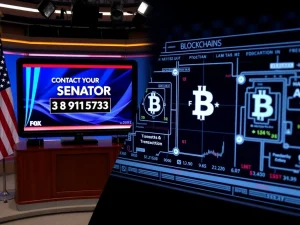Bitcoin News: White House Unveils Game-Changing Crypto Risk-Mitigation Framework

The White House has released a groundbreaking crypto regulatory report, setting the stage for a structured approach to Bitcoin and digital asset governance in the U.S. This pivotal document aims to balance innovation with risk mitigation, marking a significant moment for the cryptocurrency industry.
What Does the White House Crypto Report Mean for Bitcoin?
The report, described as a “regulatory Bible,” outlines a comprehensive framework following President Biden’s 2022 executive order. Key highlights include:
- Clarification of tax obligations for digital asset transactions
- Enhanced consumer protections against fraud and market manipulation
- Measures to combat money laundering through stricter AML frameworks
- Focus on maintaining U.S. competitiveness in the global crypto landscape
How Will the Risk-Mitigation Framework Impact the Crypto Industry?
The multi-agency initiative addresses critical areas:
| Focus Area | Impact |
|---|---|
| Financial Stability | Addresses systemic risks from crypto’s growing influence |
| Consumer Protection | Enhances safeguards for stablecoins and DeFi |
| National Security | Proposes measures against illicit financial activities |
Digital Asset Regulation: What’s Next for U.S. Policy?
While the report sets the stage for future legislation, it notably excludes earlier proposals for a strategic Bitcoin reserve. Industry stakeholders remain cautiously optimistic about:
- Potential for increased institutional investment
- Clearer compliance guidelines for exchanges
- Reduced market uncertainty
Frequently Asked Questions
Will this report lead to immediate new crypto laws?
No, the report serves as a roadmap for future legislation rather than introducing immediate new laws.
How does this affect individual Bitcoin investors?
The emphasis on transparency and safeguards may boost confidence, though some fear overregulation could limit innovation.
What agencies are involved in implementing this framework?
The SEC, CFTC, FinCEN, Treasury, and Federal Reserve will all play roles in developing specific regulations.
Why was the Bitcoin reserve proposal excluded?
Due to Bitcoin’s volatility, logistical challenges, and the need for broader political consensus on such a move.










